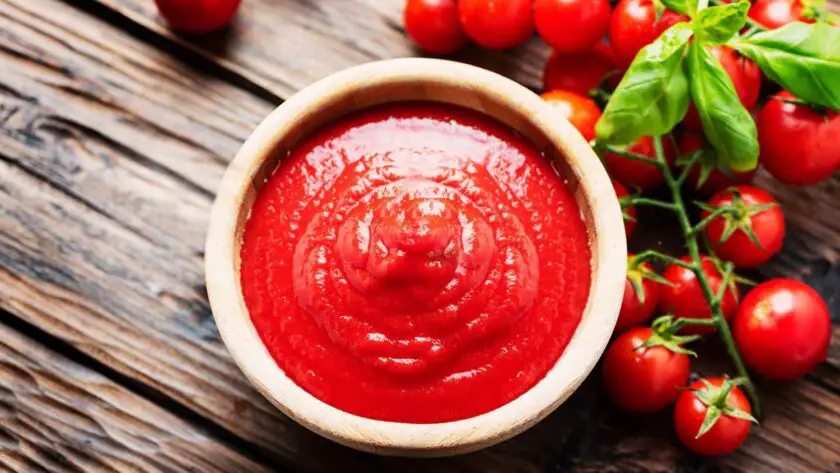Heinz ketchup, a popular condiment found on dining tables around the world, is known for its tangy flavor. However, what often goes unnoticed is the significant amount of sugar lurking within this beloved sauce. In this article, we will explore the implications of the high sugar content in Heinz ketchup and its effects on insulin and blood sugar levels, shedding light on the potential health concerns associated with its consumption.
Sugar Content in Heinz Ketchup:
A quick glance at the nutrition label reveals that Heinz ketchup contains roughly one teaspoon of sugar per tablespoon serving. While this may not seem alarming at first, considering the small serving size, it is important to understand that many people tend to use more than just one tablespoon of ketchup in their meals. The cumulative effect of consuming larger quantities of ketchup can contribute significantly to sugar intake, potentially impacting overall health.
Insulin Response and Blood Sugar Levels:
When we consume foods containing sugar, such as Heinz ketchup, our bodies break down the sugar molecules into glucose, which enters the bloodstream. In response, the pancreas releases insulin to facilitate the uptake of glucose into cells for energy or storage. The higher the sugar intake, the more insulin is required to manage the increased glucose levels.
The excessive consumption of sugary foods, including ketchup, can lead to repeated spikes in blood sugar levels, triggering corresponding insulin surges. Over time, this cycle may strain the pancreas, potentially leading to insulin resistance, a condition where cells become less responsive to insulin. Insulin resistance is often a precursor to type 2 diabetes and other metabolic disorders.
Impact on Health:
The high sugar content in Heinz ketchup poses several health concerns. Firstly, it contributes to empty calories, meaning it offers little nutritional value beyond its caloric content. Excessive calorie consumption can lead to weight gain and obesity, increasing the risk of chronic conditions such as heart disease and diabetes.
Moreover, the frequent consumption of high-sugar foods, including ketchup, can contribute to the development of a preference for sweetness. This preference may lead to an increased desire for other sugary foods, potentially creating a cycle of overconsumption and making it challenging to maintain a balanced diet.
Healthier Alternatives and Moderation:
Reducing sugar intake from condiments like Heinz ketchup can be a wise decision for maintaining overall health. Several alternatives are available, such as reduced-sugar or sugar-free ketchups, which use artificial sweeteners or natural sugar substitutes like stevia or erythritol. These alternatives can provide a similar taste experience while minimizing the negative impact on insulin and blood sugar levels.
Additionally, practicing moderation is key. Rather than liberally pouring ketchup onto meals, try using smaller portions or exploring other flavor-enhancing options like herbs, spices, or vinegar-based dressings. This approach allows for enjoying the taste of ketchup while minimizing the sugar intake.
While Heinz ketchup undoubtedly adds a delightful flavor to meals, it is crucial to recognize its high sugar content and the potential health implications associated with excessive consumption. Regularly consuming foods with added sugars can contribute to insulin resistance, weight gain, and an increased risk of chronic diseases. Opting for reduced-sugar alternatives or using ketchup in moderation can be beneficial for maintaining a balanced and healthy diet. By being mindful of our sugar intake, we can make informed choices and prioritize our long-term well-being.
Instead of buying sugar filled ketchup from the store you can make your own organic homemade version instead. This will allow you to have healthier condiments that don’t effect your blood sugar and insulin levels.
How To Make Organic Sugar Free Ketchup From Home
Ingredients Needed:
- Organic Tomatoes
- Organic Onion
- Organic Garlic
- Vinegar
- Sugar (optional)
- Sea Salt (We like ava jane’s sea salt, it’s so good! Click here to see why!)
- Spices (e.g., cloves, cinnamon, allspice)
How To Make Organic Ketchup Instructions:
- Blanch the tomatoes by scoring an “X” on the bottom, boiling them for 30 seconds, and transferring them to an ice bath. Peel off the skins, core the tomatoes, and roughly chop them.
- Place the chopped tomatoes, onion, and garlic into a blender or food processor. Pulse a few times until the mixture is finely chopped but not completely pureed.
- Transfer the tomato mixture to a large pot and add the vinegar, sugar, salt, and spices.
- Simmer the mixture over medium heat for about 45 minutes to 1 hour, stirring occasionally, until the tomatoes break down and the flavors blend together.
- Allow the mixture to cool slightly before returning it to the blender or food processor.
- Blend the mixture until smooth and desired consistency is achieved.
- Optional: Strain the ketchup through a fine-mesh sieve or cheesecloth for a smoother texture.
- Taste and adjust the seasoning, adding more sugar, vinegar, salt, or spices if desired.
- Simmer the ketchup for a few more minutes if needed to thicken it further.
- Let the homemade ketchup cool completely.
- Transfer the ketchup to sterilized jars or containers.
- Store the ketchup in the refrigerator.
By using a blender or food processor, you can simplify the process and achieve a smoother texture for the homemade ketchup.




